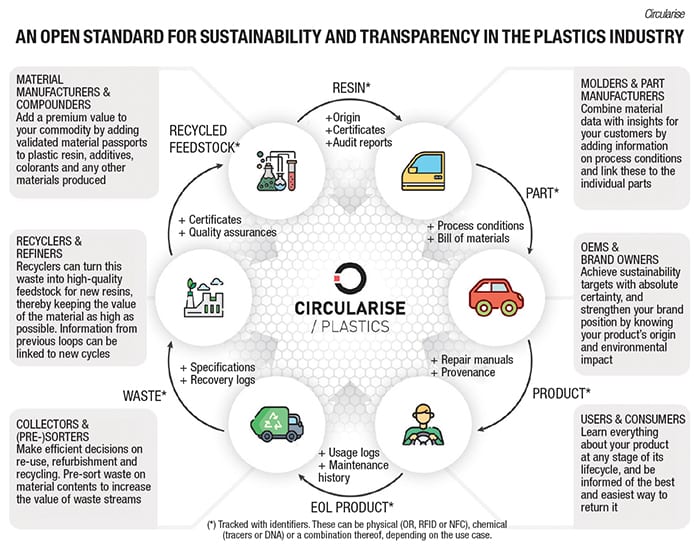
If you are thinking of a career involving supply chain management, here are some things to keep in mind. There are many types of supply chains. Different industries have different supply chain models. For example, a supply manager in a manufacturing organization would not be the best choice for someone interested in working at a wholesale or retail store.
Characteristics of a successful supply chain manager
Supply chain managers who excel are adaptable learners who are open to learning and willing to experiment with new ideas. They are quick to grasp the nuances and take failures as opportunities to learn. They love to tackle new tasks and they can grasp the essence quickly. Their inherent curiosity for the unknown drives their desire to learn.
The supply chain manager must not become a micromanager, but be skilled at taking on strategic risk. Although risks are part of growth, data must support them. This means being strategic and analytical rather than reactive. Inflexibility hinders success. It also causes frustration in supply chain managers.

The management of a supply-chain is complex and always changing. Supply chain managers must keep up to date with market trends, and also be proactive in the implementation of new technology. They must also communicate well with technologists with advanced knowledge.
Requirements for a bachelor's degree in supply chain management
Students who earn a bachelor's in supply chain management will have a solid foundation in strategic management, business administration, and leadership. This degree builds on the skills required for common software applications. An accredited undergraduate degree program in supply chain administration is very affordable. In 2020, full-time programs at public four-year universities cost in-state students on average $10,560 per annum, compared with $37.650 at private universities. Financial aid is available to help reduce the amount. Federal student loans are also available to finance your degree.
A degree in supply chain management online from an accredited university is an option. The program covers international supply chains and global supply chains as well as business decision-making. Other topics include sustainability in global supply networks and operational strategies. The program costs $688 per credit hour.
The job duties of a supply chains manager are typical
The organization and management of a company’s supply-chain is the responsibility for supply chain managers. They plan the flow of products, manage inventory, and create and implement processes to keep costs down. They also manage third-party logistics companies, identify waste, perform environmental performance assessments, and handle other administrative tasks. They create monthly, weekly, or daily reports based on their performance metrics.

Most supply chain managers work forty hours per semaine and are often located in business settings, sometimes far from the manufacturing floor. This position requires extensive knowledge about the business, operations, as well as the processes within the company. They will need to be comfortable working alongside people and data. You might be a good fit for a job as a supply chain manager if you are passionate about following procedures and thinking creatively.
The salary of a supply chain manager is slightly higher than that of a director of procurement. Both roles require the same skills and knowledge in logistics, procedures and customer service.
FAQ
How can we make our company culture successful?
A positive company culture creates a sense of belonging and respect in its people.
It is founded on three basic principles:
-
Everybody can contribute something valuable
-
Fair treatment of people is the goal
-
It is possible to have mutual respect between groups and individuals
These values are evident in the way that people act. For example, they will treat others with courtesy and consideration.
They will listen to other people's opinions respectfully.
They encourage others to express their feelings and ideas.
The company culture promotes collaboration and open communication.
People feel comfortable expressing their opinions freely without fear of reprisal.
They know mistakes will be accepted as long as they are dealt with honestly.
Finally, the company culture encourages honesty as well as integrity.
Everybody knows they have to tell the truth.
Everyone is aware that rules and regulations apply to them.
No one is entitled to any special treatment or favors.
How can a manager motivate his/her staff?
Motivation can be defined as the desire to achieve success.
It is possible to be motivated by doing something you enjoy.
You can also get motivated by seeing your contribution to the success or the improvement of the organization.
You might find it more rewarding to treat patients than to study medical books if you plan to become a doctor.
Motivation comes from within.
Perhaps you have a strong sense to give back, for example.
You might even enjoy the work.
If you feel unmotivated, ask yourself why.
Then, consider ways you could improve your motivation.
What are the main management skills?
Managerial skills are crucial for every business owner, regardless of whether they run a small store in their locality or a large corporation. These include the ability and willingness to manage people, finances as well resources, time and space.
You will need management skills to set goals and objectives, plan strategies, motivate employees, resolve problems, create policies and procedures, and manage change.
There are so many managerial tasks!
What is Kaizen?
Kaizen, a Japanese term that means "continuous improvement," is a philosophy that encourages employees and other workers to continuously improve their work environment.
Kaizen is based upon the belief that each person should be capable of doing his or her job well.
Statistics
- UpCounsel accepts only the top 5 percent of lawyers on its site. (upcounsel.com)
- 100% of the courses are offered online, and no campus visits are required — a big time-saver for you. (online.uc.edu)
- As of 2020, personal bankers or tellers make an average of $32,620 per year, according to the BLS. (wgu.edu)
- Our program is 100% engineered for your success. (online.uc.edu)
- The profession is expected to grow 7% by 2028, a bit faster than the national average. (wgu.edu)
External Links
How To
How do you use the 5S in your office?
Your workplace will be more efficient if you organize it properly. A clean desk, a tidy room, and a well-organized workspace help everyone stay productive. The five S's, Sort, Shine. Sweep. Separate. and Store, work together to make sure that every inch of space can be used efficiently and effectively. These steps will be covered one-by-one and how they can work in any kind of setting.
-
Sort.Put away papers and clutter so that you don't waste valuable time searching for something that you know is there. You need to put your things where you use them the most. If you find yourself frequently referring to something, place it near the location where you do your research. Also, consider whether you really need it. If it isn't useful, get rid!
-
Shine. Keep your belongings tidy and organized so you can spend less time cleaning up afterwards. Anything that could cause harm or damage to others should be thrown out. For example, if you have a lot of pens lying around, find a way to store them safely. A pen holder might be a good investment, as it will prevent you from losing pens.
-
Sweep. Clean off surfaces regularly to prevent dirt from building up on your furniture and other items. You might want to purchase dusting equipment in order to make sure that every surface is as clean as possible. To keep your workstation tidy, you can set aside an area for dusting and sweeping.
-
Separate. When you are ready to dispose off your trash, it is a good idea to separate it into bins. Trash cans are placed in strategic locations throughout the office so you can quickly dispose of garbage without having to search for it. It's a great idea to place trash bags beside each bin, so you don’t have to go through tons of garbage to find what it is.